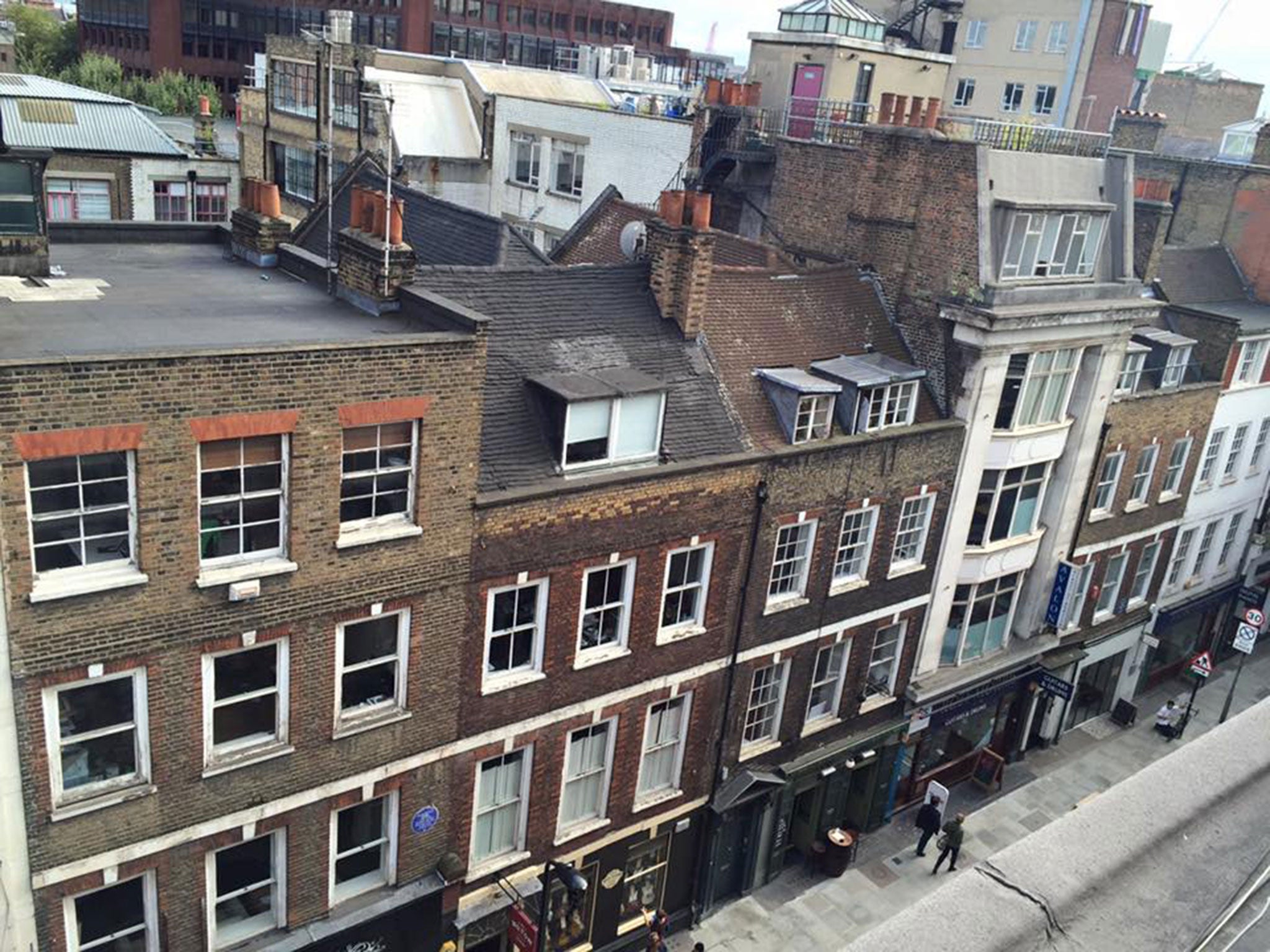Sex Pistols graffiti helps Tin Pan Alley building to Grade 2* listed status
Decision by the Department of Culture is a major victory in campaign to maintain Denmark Street

Your support helps us to tell the story
From reproductive rights to climate change to Big Tech, The Independent is on the ground when the story is developing. Whether it's investigating the financials of Elon Musk's pro-Trump PAC or producing our latest documentary, 'The A Word', which shines a light on the American women fighting for reproductive rights, we know how important it is to parse out the facts from the messaging.
At such a critical moment in US history, we need reporters on the ground. Your donation allows us to keep sending journalists to speak to both sides of the story.
The Independent is trusted by Americans across the entire political spectrum. And unlike many other quality news outlets, we choose not to lock Americans out of our reporting and analysis with paywalls. We believe quality journalism should be available to everyone, paid for by those who can afford it.
Your support makes all the difference.When Johnny Rotten pulled out a marker pen in the early days of Punk and started daubing words such “awful”, “headache” and “sick” over some newly-decorated walls he was inadvertently ensuring the entire building’s long-term preservation.
The cartoon drawings and graffiti he scrawled all over the 1970s hangout of the Sex Pistols - a former silversmith’s workshop attached to a townhouse in London’s Denmark Street – have helped the building be awarded Grade 2* Listed Status, a rare accolade.
The decision by the Department of Culture, Media & Sport, on advice from Historic England, is a major victory in the campaign to maintain Denmark Street, also known as “Tin Pan Alley”, which is widely seen as a spiritual home for British popular music but is undergoing development.
The cartoons of the singer born John Lydon aren’t exactly on a par with Banksy but they are full of spite and not without artistic merit. There’s one portrait of the band’s curly-haired svengali, Malcolm McLaren, grasping a wad of cash. Lydon captioned the drawing “Muggerage”, a less-than-respectful reference to the late television personality Malcolm Muggeridge, probably the best-known Malcolm of the era.
Another cartoon shows the late Nancy Spungen, tragic partner of Sex Pistols bassist Sid Vicious. Lydon drew her naked, alongside the scathing slogan “Nancy Spunger”. A cartoon of a skinny Vicious is enigmatically dubbed “Ego Sloshos”.

There is a certain irony, in the 40th anniversary year of Punk, that the Pistols former HQ (they recorded the first demos of God Save The Queen and Anarchy in the UK in the studio on the ground floor of the workshop building), has been given listed status by a Conservative government Heritage Minister.
Announcing the decision, David Evennett said: “These 17th century townhouses not only exhibit well-preserved architectural detail but helped nurture Soho’s influence on the global music industry during the 1960s and 1970s. As we celebrate 40 years of punk, I’m delighted to be granting further protection to these buildings which acted as a home and studio to the Sex Pistols.”
The Grade 2* star status is being given to No 6 (where the Pistols were based between 1975 and 1977) and No 7 Denmark Street, which are two of eight original buildings from a street that was laid out between 1686 and 1691.
The street was originally built for the middle-classes but became part of the notorious St Giles Rookery slum of the Dickens era. In the Twentieth Century, it established its remarkable musical heritage. The music publication Melody Maker was founded there in 1926 and the street became known as Tin Pan Alley because of its plethora of musical instrument shops.
The area is undergoing transformation and set to become part of a new St Giles Circus development. Richard Metcalfe, consultant at Consolidated Developments, which owns most of the street, promised that the company was “looking to rejuvenate life back into ‘Tin Pan Alley’ and revitalise this music street.”
Henry Scott-Irvine, founder of the Save Tin Pan Alley campaign, welcomed the listing as “fantastic news”. But he said Consolidated needed to make a “specific written commitment” to preserving the famous street and its heritage.
John Lydon had little respect for architectural niceties. In a film for Julien Temple, Pistols drummer Paul Cook recalled how the singer had been annoyed after his colleagues had carried out interior decoration at 6 Denmark Street. “John came in and goes “Eeeugh, I don’t like it, it’s all posh’ so he started getting the marker out…”
Join our commenting forum
Join thought-provoking conversations, follow other Independent readers and see their replies
Comments